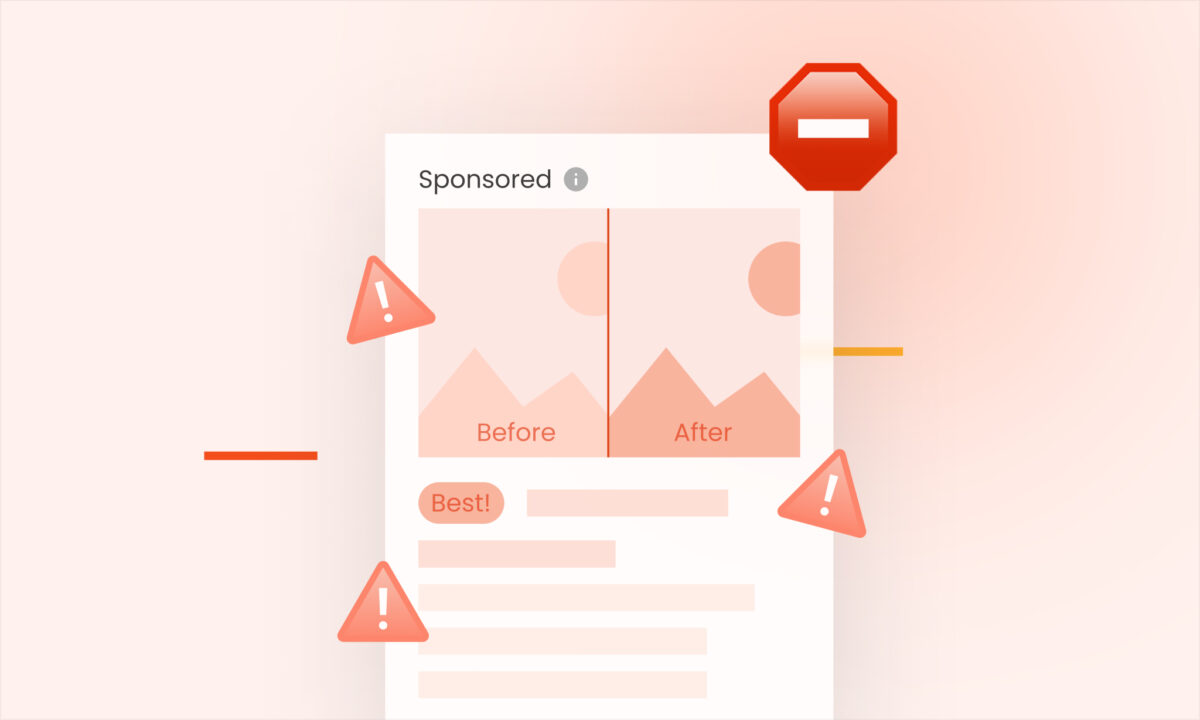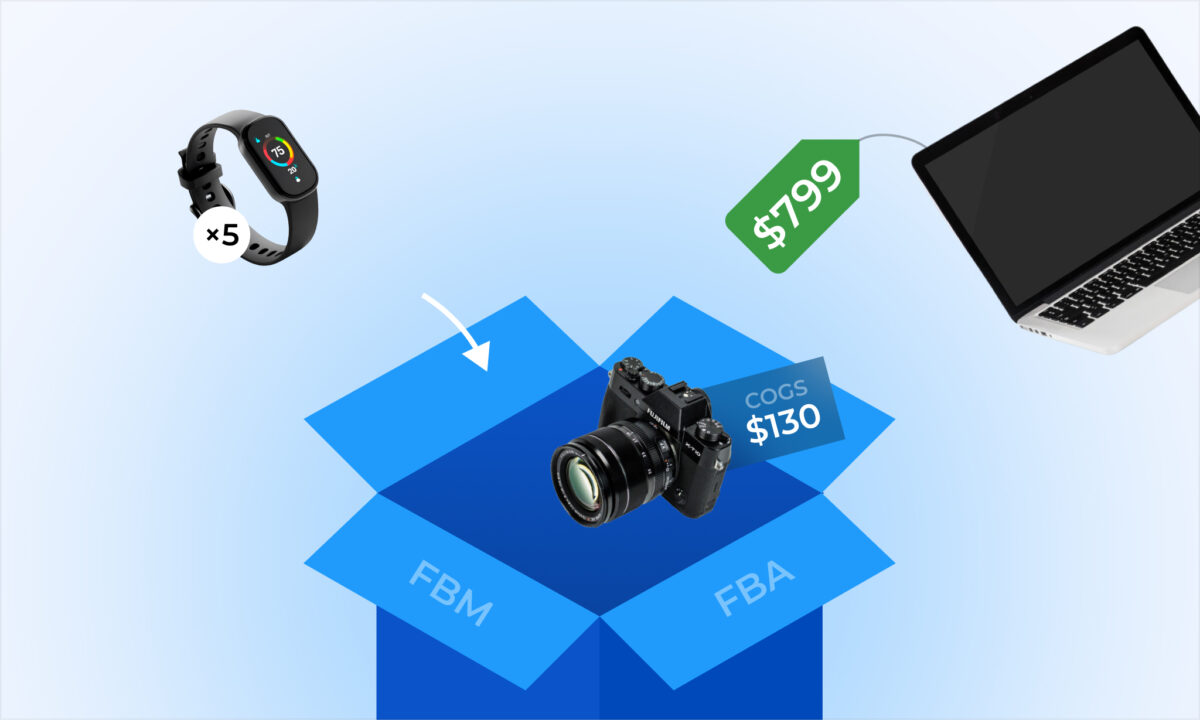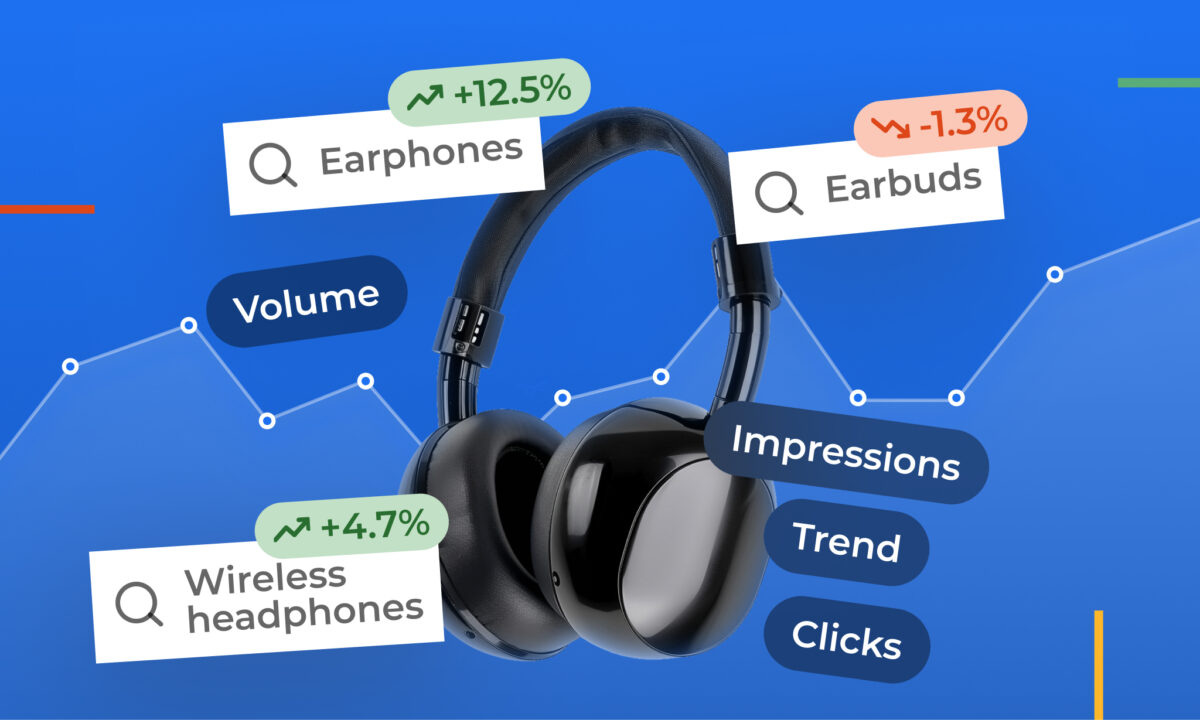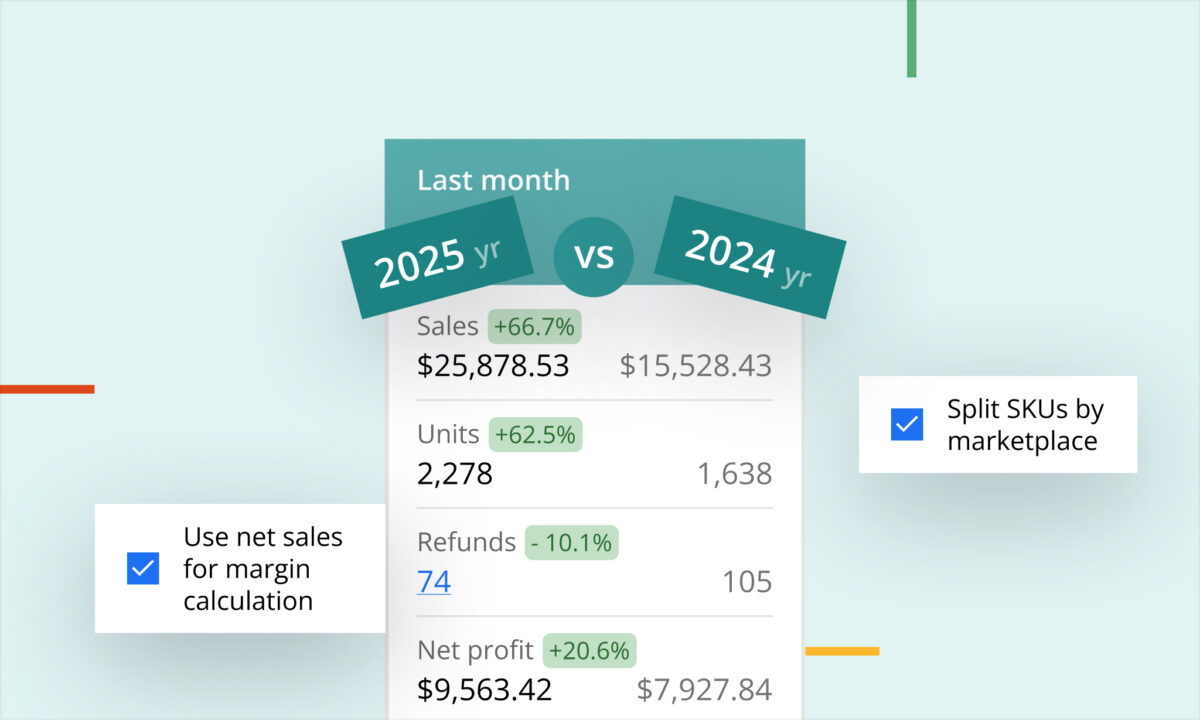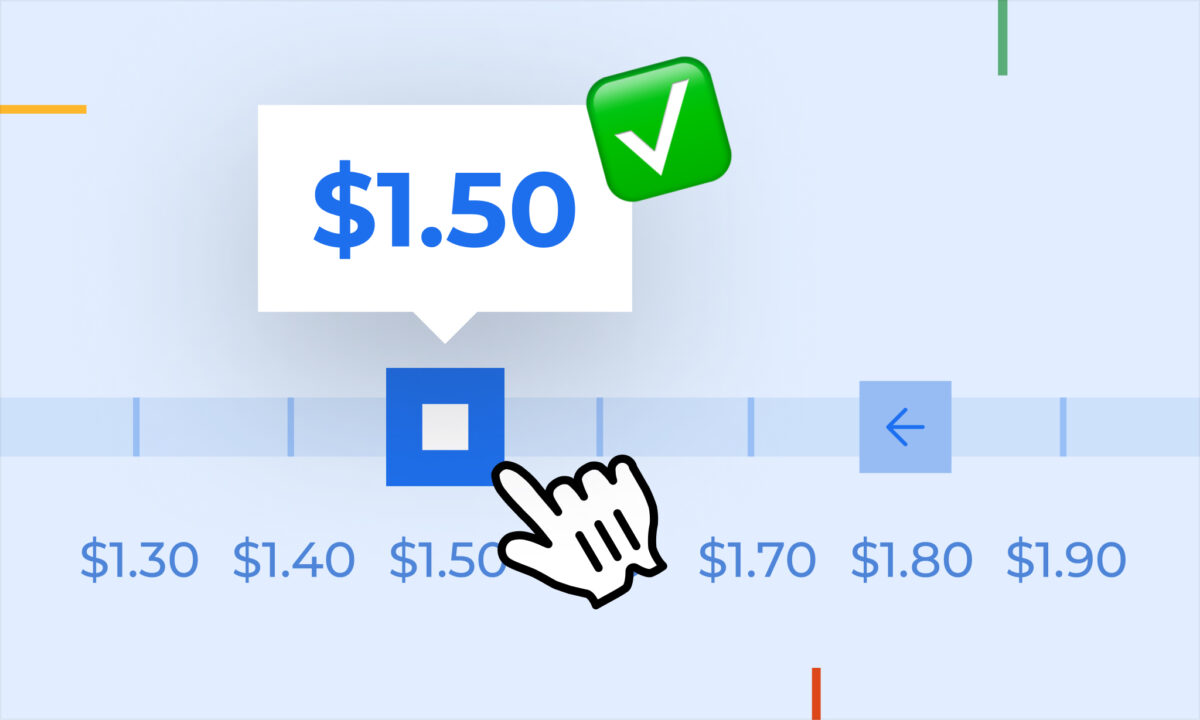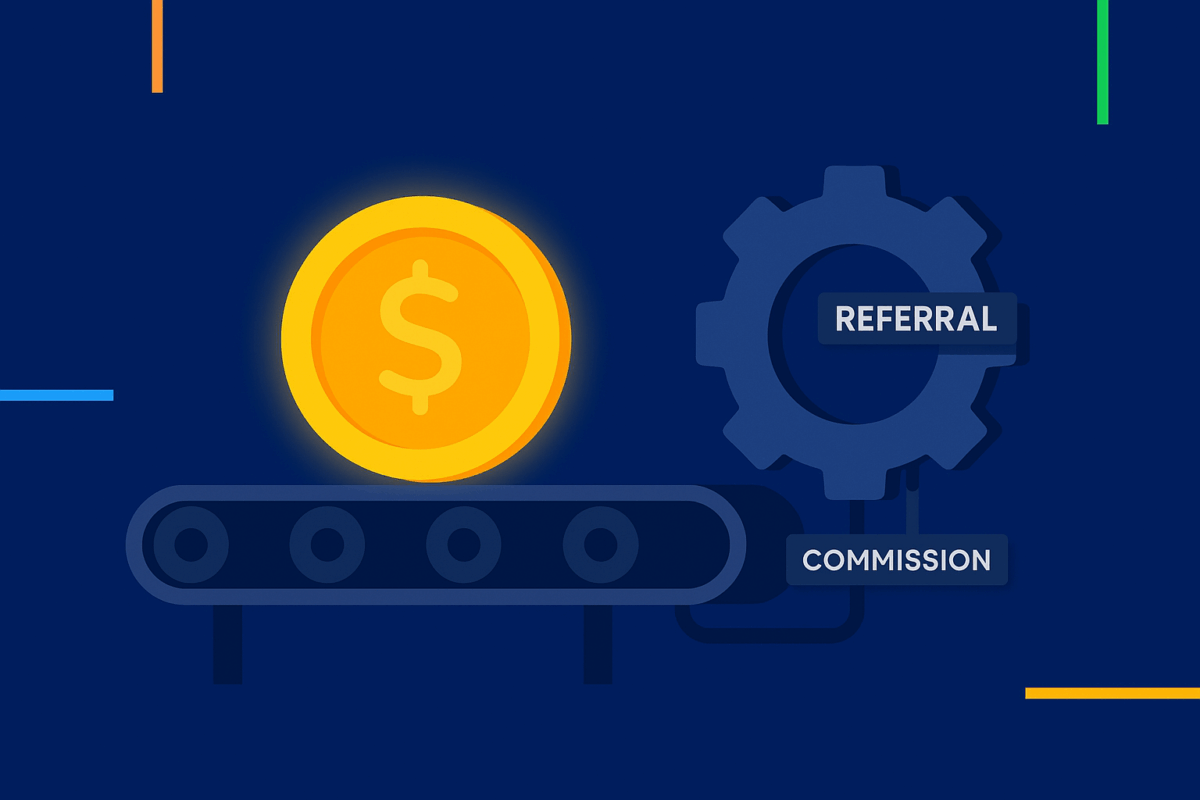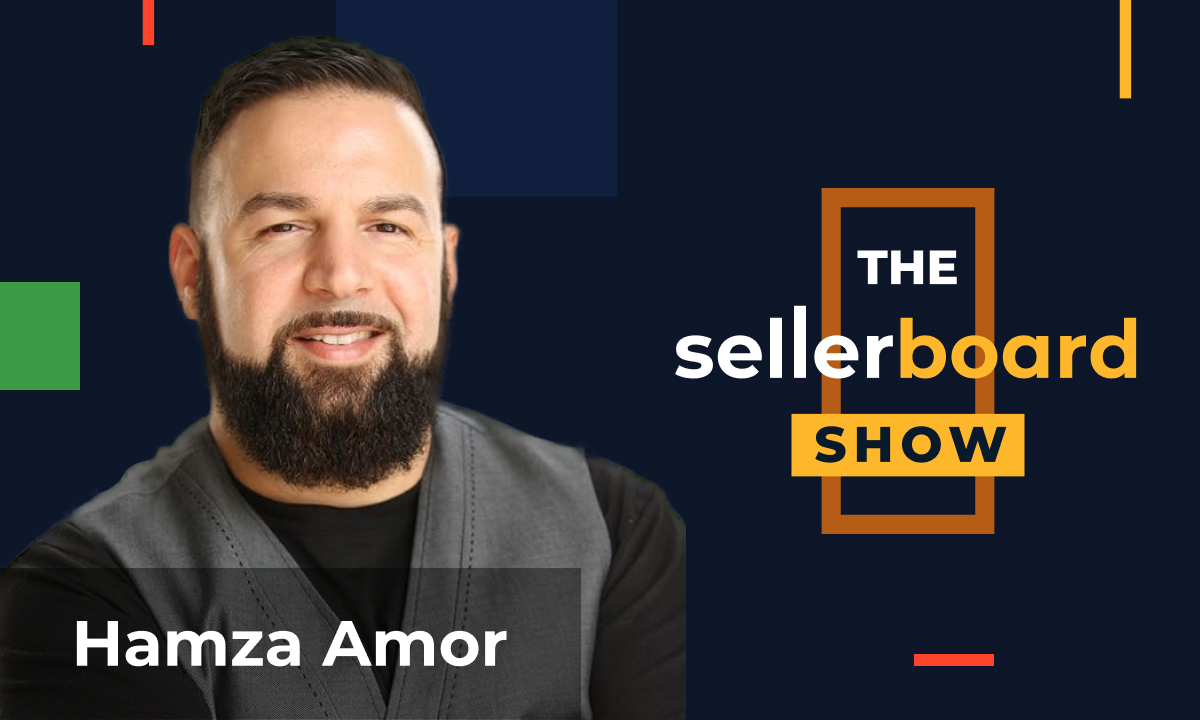Our guest on the sellerboard show was Nathan Hirsch – entrepreneur and expert in remote hiring and eCommerce and co-founder of EcomBalance & Outsource School.
Contents:
- what is bookkeeping;
- TOP reasons to start doing bookkeeping;
- how to start the process;
- making decisions on bookkeping;
…and much more!
Watch the full interview by this link.
Speaker1: [00:00:07] Hello, everybody. Welcome. This is Fernando from the sellerboard show. Today we have a very important meeting with Nathan that’s going to talk to us about bookkeeping and how important bookkeeping is to run your Amazon store and make sure you make decisions based on the data, on the bookkeeping. But before we start the interview, I just want to ask you to go to sellerboard.com, click on demo, play with the software. I’m sure you’re going to like it. It has everything that you need to run your Amazon store. Actually, it’s almost impossible to run your Amazon store without a software like sellerboard. And you can see everything. You can see tacos by products, you have inventory management, you can send methods. There’s so much information, valuable information to see how the store is doing. And it’s the interface is so beautiful, it’s so fast, and all the information that you need is just there in front of you so you can make decisions. So don’t forget to go to sellerboard.com, click on demo, play with the software. I’m sure you’re going to like it. And now we can go to the interview. I’ll see you guys at the end. Bye bye. Hi, everybody. I have here a very special guest for you today. His name is Nathan Hirsch. He’s the CEO and owner of Ecom Balance. And we’re going to talk about one of my favorite topics on Amazon, especially this time of the year, as we get ready to fill our tax return. Nathan, thank you so much for being here. Yeah, thanks so much for having me. It’s a it’s our pleasure. Uh, Nathan, can you go over a little bit of your story? I know you started selling on Amazon 2009. Think. Don’t think I was born back then. Yeah. So, I mean, I started off as a broke college kid looking for extra money, and I started buying and selling.
Speaker2: [00:02:01] People’s textbooks, competing with the school bookstore. And I, I didn’t really have a that much room to store textbooks. I didn’t have a lot of money to buy textbooks up front, but I was hustling. I created an affiliate program with my my college peers. And before I knew it, I had lines out the door of people trying to sell me their books. Well, my college catches on and they send me a cease and desist letter telling me to stop competing with their bookstore. And I didn’t want to get kicked out of college, so I had to pivot. But I had this Amazon account and back then, no one really knew what Amazon was. It was just this big bookstore that was just getting into other products. So I started experimenting and I said, Hey, I don’t have money to buy inventory. I don’t have any place to store stuff. What if I drop ship, essentially? Although I didn’t know it was actually called drop shipping until years later. But if I contacted US manufacturers that didn’t know e-commerce, they would keep my credit card on file and they would send the product wherever I needed it to go directly to the customer. And so I started building this Amazon drop shipping business. And back then there were no courses, there was no Amazon software. No one really knew what being an Amazon seller was.
Speaker2: [00:03:10] It wasn’t a real thing. But as we scaled this business and it became more stressful and bigger and I couldn’t do it all myself, I had to start hiring people. And I quickly learned that college kids were very unreliable and adults didn’t really want to work for me as a 20 year old college kid. So that’s how I got into the virtual assistant space. The buddy of mine introduced me to my first VA in the Philippines, and I was obsessed. I saw it as a real solution to my my problem of being overworked and not being able to grow because I didn’t have enough people. So for years we scaled this Amazon business with virtual assistants. I think at first we thought we were going to be the next Amazon or take Amazon down. That didn’t really happen and Amazon became harder with algorithm changes and more sellers. But we had all these great e-commerce virtual assistants and freelancers that we started to offer out to other e-commerce sellers, and that became the free up marketplace, which was a lot of fun. It was our first our first B2B business. We had our own website, our own brand. We went on podcasts, we built partnerships, and we scaled that business for for four years before being acquired in 2019, which is a whole nother story we can talk about. Congratulations.
Speaker1: [00:04:25] Thank you. Want to talk about it?
Speaker2: [00:04:28] And since then, we launched Outsource School, which is our membership, where we teach people our hiring process and our new venture. Really branching away from the freelancer space is Ecom Balance, our monthly bookkeeping service for ecommerce sellers, which again we can talk about. But that’s my my short, long story of how I went from a college kid selling textbooks to drop shipping baby products and home goods to, to free up and selling that and now outsource school and balance. Are you a seller? I’m not a seller. So we we sold about $25 million over 6 or 7 years. We peaked out at about six, $7 million. And then after that, we were kind of going up and down and we were just doing a lot of adjusting to Amazon’s algorithm and then free up was blowing up. So we made what ended up being a really good decision to wind down our Amazon business and, and focus on free up nice.
Speaker1: [00:05:19] So free Up is specialized on the hiring part, right?
Speaker2: [00:05:23] Yeah. So it’s a marketplace that instead of Upwork or anyone can create a profile, we would vet every VA and freelancer before letting them on. It was very e-commerce focused. You got to remember like now there’s a lot of agencies and e-commerce service providers. Back in 2016 when we started that, that didn’t really exist. There weren’t a lot of good Amazon Vas and freelancers and agencies. So we started off really focusing on the e-commerce space and then when we grew, we branched out and started providing like marketers, like Facebook ad experts and stuff for other companies. But yeah, it’s a pre-vetted marketplace for virtual assistants and freelancers.
Speaker1: [00:06:02] Nice. Is that so? Running it is, right? Yeah.
Speaker2: [00:06:04] They’re still running. And we have a great, great relationship with the owners that bought it. They support balance and our ventures and yeah, we still use free up for for hiring people.
Speaker1: [00:06:14] Nice. Very cool. Okay, so let’s let’s dive into the good stuff on balance. What it is and how can he how can he help the Amazon seller.
Speaker2: [00:06:26] Yeah. So to give some background, I mean, think I like to focus on unsexy businesses like hiring and bookkeeping usually isn’t the the top thing that people care about. But the reason we were able to sell fry up and pass due diligence is we had a really great team and and I wasn’t stuck in the operations of the business, but also we had really clean finances. And going back four years, one of the best decisions we made after doing not doing a great job hiring bookkeepers for our Amazon business was hiring a bookkeeper from day one in free Up. And not only did it help us sell it, but every single month we were able to make good decisions based on what the numbers were telling us because we had a good, accurate on time Bookkeeper. And so we did a lot of market research before starting Ecom balance and a lot of e-commerce sellers have the same issue. Either they don’t have a good bookkeeping setup or they have a bookkeeper that doesn’t understand e-commerce or they have they’re doing the bookkeeping and they’re not on time because they’re more focused on tax and deadlines and other stuff. So we really wanted to set out and build the best bookkeeping service for ecommerce sellers because the truth is you should not be doing your own bookkeeping. It’s a terrible use of your time. Your time should be focused on growing your business. And nine out of ten times when a seller tries to do their own bookkeeping, it just has to be done redone later by someone who really knows what they’re doing.
Speaker3: [00:07:46] Mhm. Yeah.
Speaker1: [00:07:48] And tell me what like one of give me an example of one of the benefits of having the bookkeeping from day one.
Speaker2: [00:07:57] Yeah. So bookkeeping, having a good bookkeeping process helps you in a lot of ways. It can help you sell a company like we did. It can help you get funding and get help you get investments. It’s going to make tax season less stressful. But the real reason to do bookkeeping every month is for the decision making. You should be getting. The month should end. You should get income statement, balance sheet cash flow sent to you by the 15th of every month, and you should have a finance meeting on your calendar between the 15th and the 20th of every month. And that’s the meeting where you make decisions. Are you going to hire more people, invest in PPC, Are you going to launch a new product or go on another marketplace or scale back on something? A lot of e-commerce sellers, they’re making decisions based on guesses or hunches or they’re making decisions based on numbers that they see going into their bank account. But that’s not an accurate way to do it. You might be selling ten products and only eight of them are profitable, and you’ll save a lot of money by cutting those two products or increasing pricing, whatever it is. So being able to make good decisions based on real numbers is something that a lot of sellers really overlook. And e-commerce bookkeeping is complicated. It’s not just sales. You’ve got refunds, you got fees, you got storage fees, you got different marketplaces, sales tax, a lot of stuff going on. So it’s really important that you know what’s going on in your business every single month.
Speaker1: [00:09:17] Okay. And how do people people that are interested, how do they sign up? They go to Ebags.com and how does it work?
Speaker2: [00:09:25] Yeah, you go to balance.com, you create an account, you fill out a pricing form and you give us access to your current books and we’ll give you a quote within a business day. And that quote will be two parts a fixed price for any kind of catch up cleanup depending on how far we have to go back. And then a fixed price for a monthly of what it will be every month going forward. And our service is pretty straightforward. We charge you on the first you get your books by the 15th each month. There’s no commitment, although if you want to pay a year up front, you get a discount. And yeah, anyone that signs up from this, this podcast gets two months free. So a little incentive to try us out.
Speaker1: [00:10:01] Oh, nice. Very cool. Thank you. So are we going to are we going to put the link below in your video?
Speaker2: [00:10:07] Yeah. Just go to ecom balance.com and when you sign up, just mention the seller board podcast.
Speaker1: [00:10:13] Oh okay. Okay. Gotcha. Gotcha. All right, perfect. Uh, what would you say, uh, from your experience, what would you say? Like people are making that their biggest mistakes.
Speaker2: [00:10:26] Yeah. So I’ll kind of approach that question in two parts. That a really good way for e-commerce sellers to know whether their bookkeepers understand e-commerce is the top line of your income statement. If the top line of your income statement is the net that’s deposited to your bank account, that is incorrect. A good e-commerce bookkeeper is using a tool like Sellaband to connect to the Amazon marketplaces, and the top line of their income statement is their Amazon sales. And then there’s different fees, refunds and all this stuff, and then it gets to the net in their bank account. So that’s a very common mistake for bookkeepers that don’t understand e-commerce. But I’ll also flip that. What can what should you be doing as an entrepreneur and what is the easiest thing for you to do to avoid issues? And that’s having the correct setup. The correct setup means using QuickBooks Online or Xero. The two most popular bookkeeping tools don’t use wave or bench or other tools that either make it so you’re forced onto their system and it’s hard to get off or they’re free for a reason. And eventually you’re going to have to outgrow them. Or most bookkeepers don’t know how to use them.
Speaker2: [00:11:29] So if you ever switch bookkeepers, it’s going to be a pain. Next, it’s using business checking accounts, business saving accounts, business credit cards that allow you only access if you’re using a personal account. Obviously, you should not intermingle personal and business, but if you use a personal account just for business, you’re not going to be able to give view only access to your bookkeepers and you’re going to waste a lot of time every month downloading statements and create a lot of hassle. The fewer bank accounts you have, the better. You usually don’t need 6 to 10 bank accounts unless you’re really big or have a real reason to do that. Keep it simple. Use accounts that you can use, Give you only access to use good bookkeeping software and use a tool like Sellaband to connect in between QuickBooks and the marketplaces. You a lot of times, most of the time you’re not going to be able to do to go from the marketplace to QuickBooks without some kind of good connecting tool. So you got to factor that in. Having the right setup is the key to having a good monthly bookkeeping process.
Speaker3: [00:12:26] Mhm.
Speaker1: [00:12:27] Very cool. Very cool. What did you come up with that idea.
Speaker2: [00:12:32] A lot of brainstorming. I mean, the original plan when we sold Free up was to take a year off and travel the world, and we sold it in November 2019. So a few months later COVID hit and we were kind of stuck inside with no business to run and couldn’t travel. And so we started brainstorming and we launched Outsource school. And people really liked that, but we wanted to do something different outside of the VA and freelancer space. So for a good six months a year, we brainstormed different ideas and did a lot of market research. And from our research, bookkeeping is obviously a big industry. It applies to everyone. But most bookkeeping companies either struggle with e-commerce, struggle to hire, struggle to scale, struggle the big build processes, or they just struggle to speak. Entrepreneur I always say that we don’t want to speak bookkeeper to our clients. We want to speak entrepreneur to them because they don’t need to know how to reconcile accounts or how to use QuickBooks. They do need to understand what’s going on in their business and be able to make decisions based on what the numbers are saying. So we really saw a gap in the market and our goal is to kind of close that gap. And it’s really an idea that came about from our own experience going through due diligence and selling a company and creating monthly bookkeeping processes, but also talking to over 100 e-commerce sellers, doing market research. And if anyone wants to, to check out our interviews, we actually publish them to the e-commerce blog so you can see what struggles other e-commerce sellers are going through when it comes to bookkeeping.
Speaker1: [00:13:59] We’re very cool. When did you start that company?
Speaker2: [00:14:02] So balance is about a year old. We have over 100 clients and we we we’re very process driven. So we’re at the point now where we’ve kind of opened it up to more clients and ready to kind of scale and hopefully grow this thing like we’ve been able to do. But we didn’t want to like turn on the marketing and turn on the scaling until we had really good bookkeeping processes and a really strong team that that we’re very proud of.
Speaker3: [00:14:25] Gotcha.
Speaker1: [00:14:27] Gotcha. Gotcha. Um. Uh, let me see what else we need from you. Hold on. Because your history isn’t what you said. You have some trouble when you sold free up.
Speaker2: [00:14:41] Um, I don’t think I said we had trouble selling three up. I mean, selling. Selling three up was a stressful process that took six months. And we did a lot of due diligence on the buyers, just like they were doing a lot of due diligence on us. But we couldn’t have sold it to two better people. Mark Hargrove, David Martin, two great entrepreneurs. They honored our word not only paying us every penny, but taking good care of our team and making sure that they kept their jobs. And we gave them a large bonus when we sold the company as well. Um, and they continue to operate, free up and grow free up. And we’ve partnered with them on a lot of different stuff. So I was talking to one of our clients yesterday who’s looking to sell and they asked me for kind of my advice on going through the process. And the key is you want to sell it to really good people who are going to take care of your clients or customers, not hurt your reputation, but also honor their word. You don’t want to end up in a lawsuit or be arguing with them over the terms of the agreement down the line. You want to sell and put put it in a situation where it’s a win for you and a win for them. And we’re very fortunate that we’re able to do that.
Speaker1: [00:15:47] Okay. Okay, cool. And what’s bookkeeping? One of the problems that you have on the diligence.
Speaker2: [00:15:54] No, I mean, you got to remember with with free up, we did a really good job. We hired a bookkeeper from day one. We had a good process every single month with our Amazon business. Back in the day, we had no idea what we were doing. When we were 20, we opened up QuickBooks and tried to do the bookkeeping ourselves and would waste hours every single month doing it. And then we just had to pay someone to fix all our work because we weren’t bookkeepers and didn’t know what we were doing. Then we tried to make it so we would wait till the end of the year and then pay our accountant to do our bookkeeping. And the problem with that is, on a monthly basis, we didn’t know what was going on. We couldn’t make decisions. We were flying by the seat of our pants. We tried to do it quarterly instead of monthly and realized same thing. It just wasn’t it wasn’t fast enough for us to make decisions before finally hiring a bookkeeper and doing the books on a monthly process. So we learned the hard way and now we’re kind of set out on a mission to help other entrepreneurs avoid that. And once you have a good bookkeeping process, it really is a game changer for for growing your business.
Speaker3: [00:16:54] Nice.
Speaker1: [00:16:55] Um, and, uh, I had one question that I just forgot. It wasn’t the tip of my tongue. Uh uh, what are the, the, the main questions that your clients have after they onboard?
Speaker2: [00:17:12] After they onboard. Mean segmentation is a big thing. We want to make sure that you know how you’re doing per marketplace, how you’re doing per SKU, how being able to like really understand what’s going on in your business. A lot of times like there’s Amazon fees and stuff like that that you’re not aware of. So that first time that you’re getting a really clean income statement, balance sheet, cash flow, being able to understand that is key. A lot of times we’ll communicate with their CPA and make sure that they’re set up right in cash or accrual. That’s a big thing that comes up because a lot of brokers in the space have come out and said, Hey, you’ll you’ll get a better evaluation if you’re on a accrual basis instead of cash. But while that’s true, there might be situations where it’s better for you to be in cash, and that’s something that that’s a conversation you really need to have with your CPA or tax professional. So those are kind of the top things that, that come up, um, that top line in the income statement which we kind of already talked about. But once you get into a good monthly bookkeeping rhythm where you know, hey, the month is going to end and by the 15th I’m going to get the numbers from my previous month and be able to look at it and see what’s good, what’s bad, be able to compare it to the previous month, be able to compare it to the same month last year and make good decisions based on those numbers. That’s what we really try to set up for all our clients and a lot of our clients have never had that before.
Speaker1: [00:18:32] That’s what I’m thinking. What is, like the percentage of, uh, of clients that you think don’t have that visibility? I was thinking, like, compared to six figure salaries, I would say like 99% don’t have that visibility.
Speaker2: [00:18:51] Yeah, I would agree with you. Or you have people that have been going by wrong numbers or they’ve been doing the books themselves or we have people who just haven’t done their books in a year or two. So you get kind of all sorts of crazy situations. And and our goal is to kind of quickly bridge that gap, get your books caught up, get them cleaned up, make sure you understand your numbers, and make sure you have a good monthly bookkeeping process going forward.
Speaker1: [00:19:15] Uh, are you able to share your websites and and walk us through it?
Speaker2: [00:19:21] Yeah. Sorry. You cut out for a second, but yeah, if you go to econ balance.com, you can check out our blog. You can check out our free resources if anyone wants the exact monthly agenda finance meeting agenda that we do every single month. We’ve been doing it for six years. You can grab that right on the balance website. But yeah, if you click get a quote, you’re going to create an account in our portal. You’re going to fill out a pricing form, which takes 30 seconds to a minute. You’re going to give us access to your books if you have them already, and we’ll get you that quote within a business day. And you can also book a call with our team right on the website. So very, very straightforward, very easy to use. Obviously, we need a little bit of information about your business and to look at what you have set up right now. But before we quote it, but it should be very quick.
Speaker1: [00:20:05] My question is for the for the sellers that don’t have QuickBooks yet. Yeah, I think they have like.
Speaker2: [00:20:10] It’s.
Speaker1: [00:20:10] It’s yeah. For the people that doesn’t have a QuickBooks yet they’re just like they just have like an accountant that do everything for them. How, how, how does it work? Do you think they should get QuickBooks first?
Speaker2: [00:20:26] Yeah. With any business you start, you need to get QuickBooks Online or Xero. It’s a business expense. It’s a necessary business expense, and you should hire a bookkeeper from day one. Your business is not going to go under because of your bookkeeper. Bookkeeping is relatively cheap compared to lawyers, CPAs, other stuff that’s in your business. And for me, any time I start a company before it’s even profitable, it’s the first thing I do is set those up and hire a bookkeeper. And even if you’re not making money, you still want to look at the numbers each month and be able to make decisions based on those numbers. So don’t keep your books in a spreadsheet. Don’t avoid hiring or a bookkeeper or doing your books. It’s something that just needs to be set up from day one. And any business that you start.
Speaker1: [00:21:07] For, let’s say for a six figure seller that’s selling like, I don’t know, $500,000 per year on Amazon, what is the average cost for a bookkeeper monthly for for a company like this?
Speaker2: [00:21:21] Yeah, you’re probably in that 300 to $700 a month range. Now, if you’re selling on a ton of marketplaces or you have some kind of complex business setup, it might be more than that. If it’s a simpler setup, it could even be less than that. But that’s kind of a ballpark.
Speaker1: [00:21:34] Okay, so less than $500. So that’s feasible for the small sellers to have it and plus the amount of information that you have, because a lot of the times sellers don’t realize that a campaign spending too much or a product’s getting too many returns and then at the end of the year, they’re like, Well, where’s my money? Yeah, it was wasted because you spent your much on or your product is, is a Dutch. But having that bookkeeping really, it’s really important. I experienced that firsthand. That experience. Yeah, right. And what’s next for balance? What are you guys working on?
Speaker2: [00:22:19] So we just launched a sister brand called Accounts Balance. That’s for software and digital agencies. So we have that going on and we’re very focused on just growing balance. We’re partnering with a lot of the biggest players in the space, like Sellaband. And yeah, we have a very robust partner network. So just like free up, we were able to to really be a part of the e-commerce community. We want to do the same thing here and we’re looking forward to scaling this thing just like we have with with other companies.
Speaker1: [00:22:44] Nice. Good job. Congratulations.
Speaker3: [00:22:47] Yes. Um.
Speaker1: [00:22:49] Okay. Any other thing that you want to tell our our viewers?
Speaker2: [00:22:55] No, I mean, feel free to connect with me on any social media channel. Nathan Hirsch, LinkedIn, Facebook, Instagram. I love meeting with people in the ecommerce space and check out Ecom balance.com. If you’re looking for a bookkeeper and if you want if you’re interested in checking out our hiring process, we have that other company called Outsource school just outsource school.com and we have a lot of free resources there to help you hire better virtual assistants.
Speaker1: [00:23:18] Think I’m going to I’m probably going to be one of the first ones to sign up. Just going to give a call to my partner and think I’m going to need to sign up because we really need a bookkeeping.
Speaker2: [00:23:31] Yeah, we’d love to. Two free months are on me, so hit me up when you’re ready.
Speaker3: [00:23:35] Oh, cool.
Speaker1: [00:23:36] All right. Thank you so much. All right, guys. So don’t forget to mention a seller boards when you call Nathan, because he’s gonna. He has some special discounts for you.
Speaker2: [00:23:48] Awesome. Thanks for having me.
Speaker3: [00:23:50] Thank you so much, Nathan. Stay on the.
Speaker1: [00:23:52] Line. And that was our interview with Nathan. Hope you liked it. Hope to realize the importance of bookkeeping to your Amazon business. Don’t forget to go to sellerboard.com and click on demo play with the software. I’m sure you’re going to like it. I’m sure you’re going to find it very useful to run your day to day operations for your Amazon business. And I’ll see you guys in the next video. Thank you so much. Bye bye.

